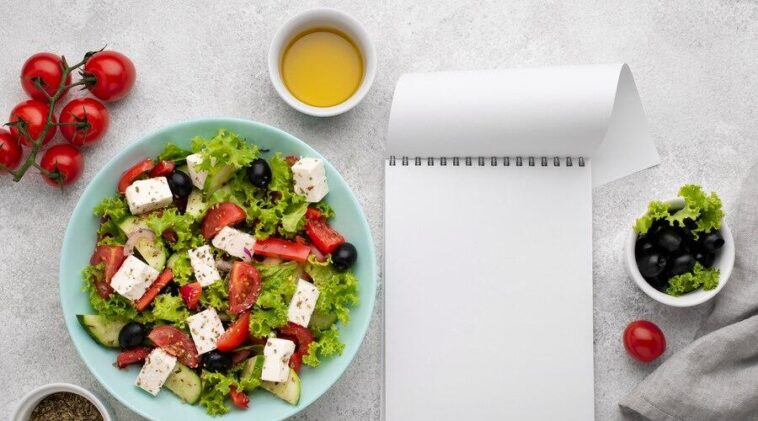The Mediterranean diet is a popular and well-researched eating pattern that emphasizes whole, nutrient-dense foods like fruits, vegetables, whole grains, legumes, nuts, seeds, and olive oil. It has been associated with numerous health benefits, including reduced risk of heart disease, stroke, and certain cancers.
In this post, we will provide you with a sample 1800 calorie Mediterranean meal plan and discuss the benefits of following this eating pattern. We will also provide tips on how to customize the plan to meet your individual needs and preferences.
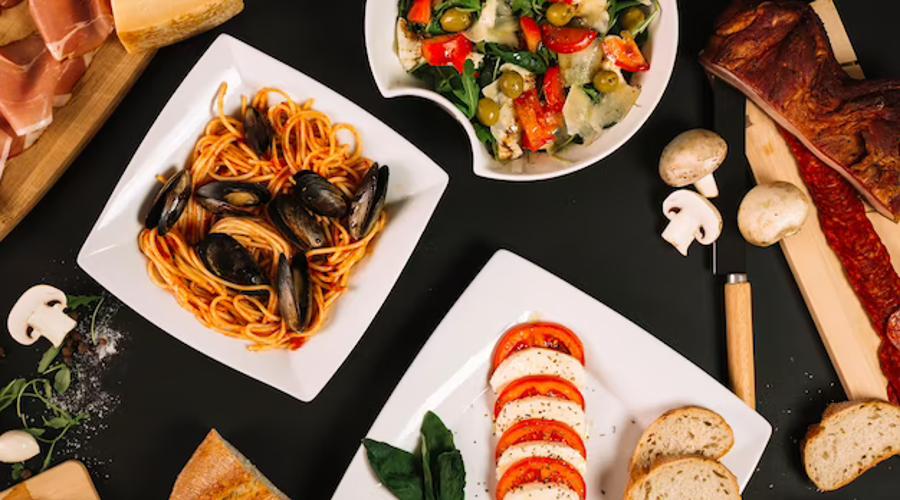
What is the Mediterranean Diet?
The Mediterranean Diet is a way of eating based on the traditional cuisine of countries bordering the Mediterranean Sea. It’s characterized by an abundance of plant-based foods, whole grains, lean protein, and healthy fats such as olive oil and nuts. Research has shown that following the Mediterranean Diet can have numerous health benefits, including reducing the risk of heart disease, stroke, and certain cancers.
The Health Benefits of the Mediterranean Diet
The Mediterranean diet has been shown to have numerous health benefits, including reducing the risk of heart disease, stroke, and certain types of cancer. It has also been linked to lower rates of obesity and type 2 diabetes. The emphasis on plant-based foods, healthy fats, and lean protein sources in the Mediterranean diet has been credited with these positive effects.
The Key Components of the Mediterranean Diet
The Mediterranean diet is centered around whole, unprocessed foods such as fruits, vegetables, whole grains, nuts, seeds, legumes, and lean proteins like fish and poultry. The diet also emphasizes the use of healthy fats, such as olive oil and avocado, and limits the intake of red meat and processed foods. Additionally, the diet includes moderate consumption of red wine and other forms of alcohol.
- Fruits and vegetables
- Whole grains
- Nuts and seeds
- Legumes
- Lean protein sources (fish, poultry)
- Healthy fats (olive oil, avocado)
- Moderate amounts of red wine and other forms of alcohol
How the Mediterranean Diet Can Help with Weight Loss
Studies have shown that the Mediterranean diet can be effective for weight loss, particularly when combined with regular physical activity. This is because the diet is naturally lower in calories due to the emphasis on nutrient-dense, whole foods. Additionally, the high fiber content of the diet can help you feel full and satisfied, reducing the likelihood of overeating. The diet’s emphasis on healthy fats can also help to control cravings and reduce the risk of binge eating.
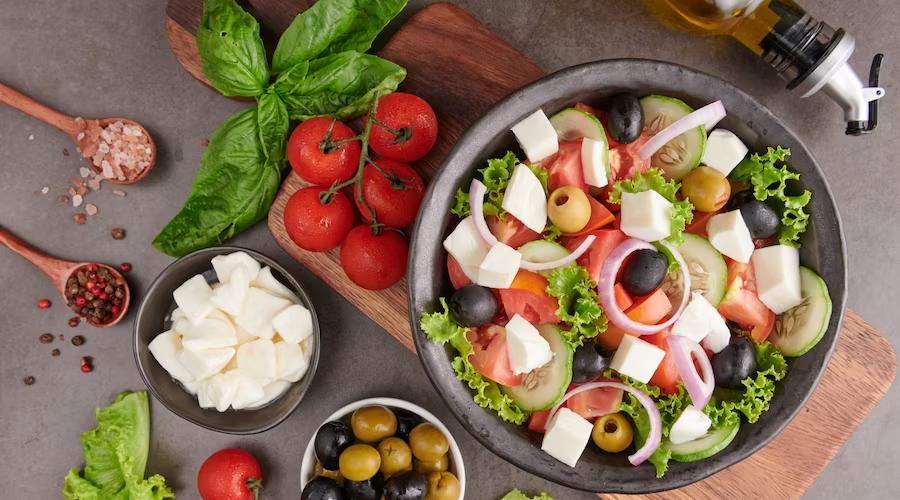
Why Choose a 1800 Calorie Mediterranean Meal Plan?
If you’re looking to maintain a healthy weight or lose weight, a 1800 calorie Mediterranean meal plan can be an effective and enjoyable option. This meal plan is based on the traditional eating habits of people living in Mediterranean countries and emphasizes whole foods, healthy fats, and lean proteins.
In addition to promoting weight loss, a Mediterranean diet has been shown to have a number of health benefits, including reducing the risk of heart disease, type 2 diabetes, and certain cancers. A 1800 calorie meal plan can be a great way to ensure you’re getting the nutrients you need while still enjoying delicious and satisfying meals.
Understanding Caloric Needs
Before starting any meal plan, it’s important to understand your personal caloric needs. The number of calories you need each day depends on a variety of factors, including age, gender, height, weight, and activity level. In general, a 1800 calorie meal plan is appropriate for women who are moderately active and men who are sedentary. However, it’s always a good idea to consult with a healthcare professional or registered dietitian to determine your individual caloric needs.
Benefits of a 1800 Calorie Meal Plan
A 1800 calorie meal plan can provide a number of benefits beyond weight loss. It can help improve overall health by providing essential nutrients and reducing the risk of chronic diseases such as heart disease and diabetes.
By following a Mediterranean-style meal plan, you can increase your intake of fruits, vegetables, whole grains, lean proteins, and healthy fats, while decreasing your intake of processed foods, refined sugars, and saturated and trans fats. This can help you feel more energized, improve your digestion, and boost your immune system.
How a Mediterranean Diet Can Fit into a 1800 Calorie Meal Plan
A Mediterranean diet is a perfect fit for a 1800 calorie meal plan. It emphasizes a variety of nutrient-dense foods, including fruits and vegetables, whole grains, lean proteins, and healthy fats like olive oil and nuts. To meet your daily calorie goals, you can adjust the portion sizes of these foods to fit your needs.
For example, a typical 1800 calorie Mediterranean meal plan may include three meals and two snacks, with each meal consisting of around 500 calories and each snack around 150 calories. With a little planning and preparation, you can create delicious and satisfying meals that will help you meet your health and weight goals.
- List of Mediterranean foods and ingredients to incorporate
- Sample 1800 calorie Mediterranean meal plan for a day
- Tips for meal prep and grocery shopping for a Mediterranean meal plan
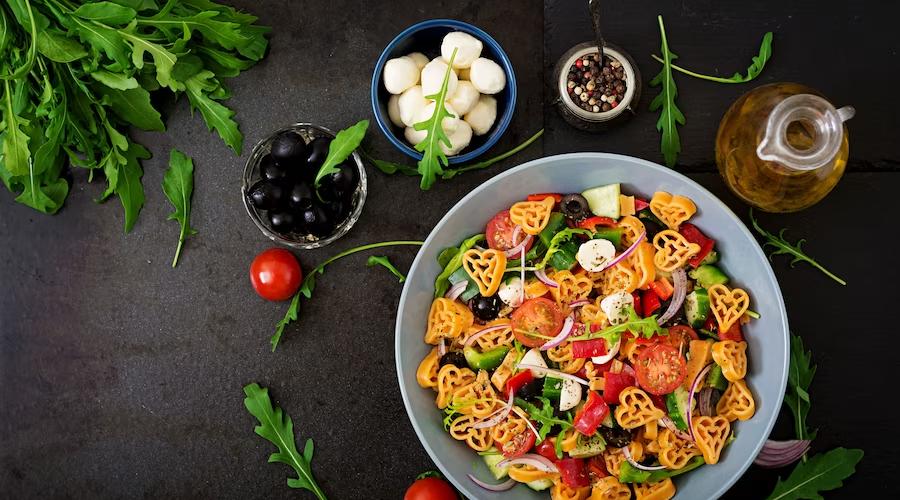
Building a 1800 Calorie Mediterranean Meal Plan
Building a 1800 calorie Mediterranean meal plan is an excellent way to maintain a healthy lifestyle while also enjoying delicious and nutritious food. A balanced meal plan that follows the principles of the Mediterranean diet can provide a range of health benefits, including reducing the risk of heart disease and promoting healthy weight loss. By carefully selecting a variety of nutrient-dense foods, you can create a satisfying and flavorful meal plan that fits within your daily caloric needs.
Breakfast Ideas for a 1800 Calorie Mediterranean Meal Plan
Breakfast is an essential meal that should not be missed when planning a 1800 calorie Mediterranean meal plan. The ideal breakfast should contain a good balance of macronutrients and be low in saturated fats and added sugars. Some breakfast ideas include:
- Greek yogurt with fresh berries, nuts, and seeds
- Whole grain toast with avocado and a boiled egg
- Overnight oats with almond milk, chia seeds, and mixed berries
- Veggie omelet made with spinach, tomatoes, onions, and feta cheese
- Smoothie made with Greek yogurt, banana, spinach, and almond milk
These breakfast ideas are easy to prepare and provide a good mix of protein, healthy fats, and complex carbohydrates to keep you energized throughout the morning.
Lunch Ideas for a 1800 Calorie Mediterranean Meal Plan
Lunch is another important meal that should be balanced and nutrient-dense. Some lunch ideas for a 1800 calorie Mediterranean meal plan include:
- Grilled chicken or fish with a side salad made with mixed greens, cherry tomatoes, cucumber, and balsamic vinaigrette
- Quinoa and roasted vegetable salad with a homemade lemon and olive oil dressing
- Lentil soup with a side of whole grain bread
- Greek salad with grilled shrimp and a side of hummus and pita bread
- Falafel wrap with hummus, tzatziki sauce, and mixed veggies
These lunch ideas are filling, delicious, and provide a good mix of protein, fiber, and healthy fats to keep you satisfied throughout the afternoon.
Dinner Ideas for a 1800 Calorie Mediterranean Meal Plan
Dinner is the final meal of the day and should be satisfying and nourishing. Some dinner ideas for a 1800 calorie Mediterranean meal plan include:
- Grilled salmon with roasted sweet potatoes and broccoli
- Whole wheat pasta with tomato sauce, grilled chicken, and sautéed vegetables
- Mediterranean-style stuffed peppers with ground turkey, quinoa, and feta cheese
- Baked eggplant with tomato sauce, mozzarella cheese, and a side salad
- Grilled shrimp skewers with roasted vegetables and a side of quinoa
These dinner ideas are flavorful and provide a good mix of macronutrients to help you feel satisfied and nourished before bed.
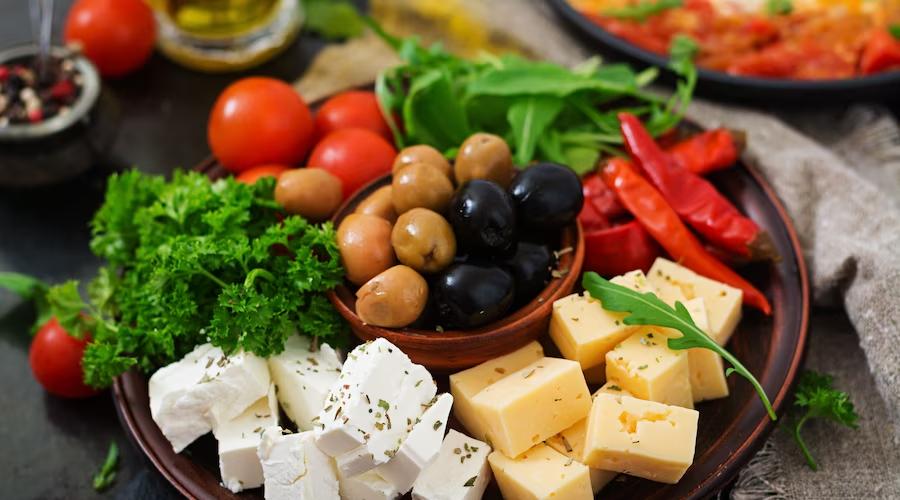
Snack Ideas for a 1800 Calorie Mediterranean Meal Plan
Snacking can be an important part of any meal plan, providing necessary energy and nutrients throughout the day. When building a 1800 calorie Mediterranean meal plan, it’s important to consider healthy and satisfying snack options that align with the key components of the diet. This includes incorporating plenty of fruits, vegetables, whole grains, lean proteins, and healthy fats into snack time. By doing so, you can maintain energy levels, prevent overeating at meals, and support overall health and wellness.
How Snacks Can Fit into a Balanced Meal Plan
While some people may view snacking as a negative habit, the truth is that snacks can play an important role in a balanced meal plan. When planned and portioned appropriately, snacks can provide a boost of energy, prevent blood sugar dips, and help maintain healthy metabolism.
When building a 1800 calorie Mediterranean meal plan, incorporating healthy snacks is key to keeping hunger at bay and maintaining balanced nutrient intake. This means choosing snacks that are high in fiber, protein, and healthy fats, while limiting added sugars and processed foods.
Mediterranean Diet-Friendly Snack Ideas
When it comes to snacking on a Mediterranean diet, there are plenty of delicious and nutritious options to choose from. Some ideas include fresh fruit and nut butter, hummus and raw vegetables, Greek yogurt with berries and nuts, whole-grain crackers and cheese, and olives and roasted almonds.
Other Mediterranean-inspired snack ideas include homemade trail mix with nuts, seeds, and dried fruit, roasted chickpeas with herbs and spices, and avocado toast with whole-grain bread. These snacks are not only delicious but also packed with nutrients that support optimal health.
- Fresh fruit and nut butter
- Hummus and raw vegetables
- Greek yogurt with berries and nuts
- Whole-grain crackers and cheese
- Olives and roasted almonds
- Homemade trail mix with nuts, seeds, and dried fruit
- Roasted chickpeas with herbs and spices
- Avocado toast with whole-grain bread
Healthy Alternatives to Common Snack Foods
When building a 1800 calorie Mediterranean meal plan, it’s important to choose snacks that are not only delicious but also healthy and nutrient-dense. This means steering clear of common snack foods that are high in added sugars, unhealthy fats, and processed ingredients. Instead, opt for snacks that are made with whole, real foods and are minimally processed.
Some healthy alternatives to common snack foods include air-popped popcorn, fresh fruit, raw vegetables and hummus, homemade energy balls with nuts and dried fruit, and Greek yogurt with honey and berries. By choosing these healthy alternatives, you can satisfy your cravings and maintain optimal health and wellness.
- Air-popped popcorn
- Fresh fruit
- Raw vegetables and hummus
- Homemade energy balls with nuts and dried fruit
- Greek yogurt with honey and berries
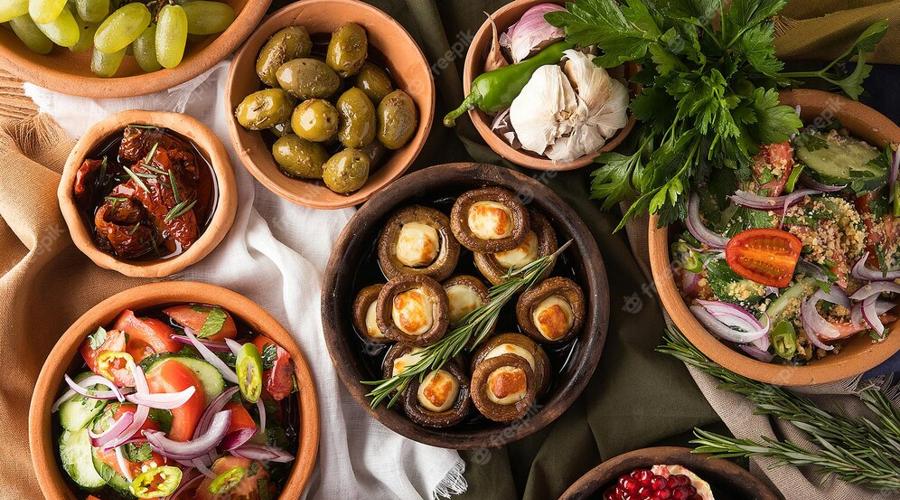
Tips for Success with a 1800 Calorie Mediterranean Meal Plan
After creating a 1800 calorie Mediterranean meal plan, it’s important to set yourself up for success by planning and prepping your meals ahead of time, staying accountable with meal tracking, and incorporating physical activity into your daily routine.
Planning and Prepping Meals Ahead of Time
To successfully stick to a 1800 calorie Mediterranean meal plan, planning and prepping meals ahead of time is crucial. This involves setting aside time each week to plan out meals and snacks, creating a grocery list, and preparing meals in advance. By doing this, you can ensure that you have healthy and nutritious options readily available, which can help prevent the temptation of unhealthy alternatives when hunger strikes.
Tips for planning and prepping meals ahead of time:
- Set aside time each week to plan meals and snacks
- Create a grocery list and stick to it
- Prepare meals in advance, such as by cooking in batches or using a slow cooker
- Store meals and snacks in portioned containers for easy grab-and-go options
- Make use of frozen fruits and vegetables for easy and convenient options
Staying Accountable with Meal Tracking
Tracking your meals and snacks is an effective way to stay accountable and ensure that you are staying within your daily calorie and nutrient goals. This can be done through a variety of methods, such as tracking apps or simply keeping a food journal. By tracking your meals, you can also identify any patterns or triggers that may be hindering your progress and make adjustments as needed.
Tips for staying accountable with meal tracking:
- Use a tracking app or food journal to record meals and snacks
- Set daily calorie and nutrient goals and track progress towards them
- Identify patterns or triggers that may be affecting progress
- Make adjustments as needed to stay on track
- Consider seeking support from a registered dietitian or nutritionist for additional guidance and accountability
Incorporating Physical Activity into a Healthy Lifestyle
In addition to following a 1800 calorie Mediterranean meal plan, incorporating physical activity into your daily routine can help maximize health benefits and support weight loss efforts. This can include a variety of activities, such as strength training, cardiovascular exercise, and even low-impact activities such as yoga or walking. The key is to find activities that you enjoy and can stick with consistently.
Tips for incorporating physical activity into a healthy lifestyle:
- Aim for at least 150 minutes of moderate-intensity activity per week
- Choose activities that you enjoy and can realistically fit into your schedule
- Mix up your activities to prevent boredom and increase overall fitness
- Consider seeking guidance from a certified personal trainer to create a customized exercise plan
- Remember that every little bit counts, so even short bursts of activity throughout the day can be beneficial.
FAQ
Yes, but it’s important to choose whole-grain options and watch your portion sizes. Whole-grain pasta and bread are great sources of fiber and nutrients, but it’s easy to overdo it and exceed your calorie goals. Stick to one serving per meal and balance it out with plenty of vegetables and lean protein.
Yes, snacks are allowed on the Mediterranean meal plan, but it’s important to choose healthy options like fresh fruit, vegetables with hummus or yogurt dip, or a handful of nuts. Avoid processed snack foods like chips and candy, which are high in calories and low in nutrients.
Yes, you can still eat meat on the Mediterranean meal plan, but it’s recommended to limit red meat and choose lean protein sources like chicken, fish, and legumes. Try to incorporate plant-based protein sources like beans and lentils into your meals as well.
It’s important to eat a variety of foods on the Mediterranean meal plan to ensure you’re getting all the nutrients you need. Include a variety of fruits, vegetables, whole grains, lean protein, and healthy fats in your meals. Consider working with a registered dietitian to ensure you’re meeting your nutritional needs while following the meal plan.

